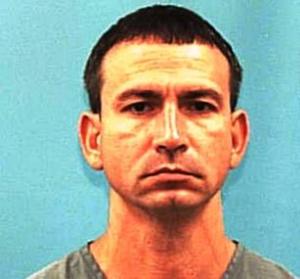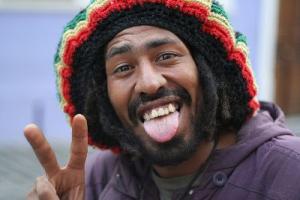With Oregon's Measure 91 marijuana legalization initiative in a tight race, supporters are pointing to the experience of Colorado and Washington as arguments for voting yes.
A 2011 fake drug house rip-off scheme in Miami that ended up with four people dead, including the police informant, has raised lots of questions about police tactics and accountability.
StoptheDrugWar.org has teamed up on a project to track local, state, and federal candidates for office and what their positions are on marijuana policy.
California Gov. Jerry Brown has signed into law a bill that removes the sentencing disparity between crack and powder cocaine offenses.
A new study punctures some myths about medical marijuana in California, Connecticut's dispensaries finally open for business, the Illinois program is moving along, and more.
A Florida police chief gets caught with online pills, a North Carolina jail guard gets caught peddling pills, a former Pennsylvania cop heads to the slammer for cooking meth, and a Seattle-area former deputy gets even more prison time for lying during sentencing.
Holder will resign, but has some parting words on rescheduling, Rahm Emmanuel supports marijuana decrim, but legalization is a step too far, Connecticut dispensaries are now open for business, and more.
A new poll is surely leading to nail-biting in Oregon, a dirty narc is costing Philadelphia prosecutors dozens of drug cases, Colombia reveals details on drug accords with the FARC, a Canadian drug policy rally is coming next week, and more.
Marijuana politics is popping up in some US Senate races, pot arrests are still going up in some states, the Guam medical marijuana initiative faces a legal challenge, Stanton Peele takes on the disease model of addiction and liberals who love it, Jerry Brown signs the California Fair Sentencing Act, and more.
Medical marijuana news from several states today, the Baby Bou Bou SWAT raid case is before a grand jury, UMass examines it's student snitch policy, DA candidates in Houston are fighting over drugs, and more.
Decrim comes to Maryland and Philadelphia, and Jamaica is working on it, too; the Oregon initiative campaign heats up, Chris Christie talks drugs, a SWAT reporting bill in Michigan gets a hearing, and more.
As Oregon voters consider Measure 91, an initiative on the November ballot that would regulate, legalize and tax marijuana for adults 21 and older, many are looking to how similar laws are affecting Colorado and Washington. Measure 91 supporters Tuesday brought together a panel of experts from those two pioneering states to make the case that marijuana legalization is a winner, with more positives than negatives for states that have taken the step.

With marijuana legalization, there has been a lot less of this... (wikimedia.org)
Admittedly, we have not had a lot of time to judge -- Colorado began allowing legal, regulated sales only this January and the first marijuana stores in Washington didn't open until July -- but early results have been promising.
In Colorado, the state has already taken in more than $27 million in taxes and fees, with more than $5 million already allocated to building schools. At the same time, violent crime in Denver has declined by 5.2%, even as the state is set to save somewhere between $12 million and $40 million in annual criminal justice system costs, according to the Colorado Center on Law and Policy.
Both a Drug Policy Alliance six-month status report and a Brookings Center report on Colorado's situation have also found that legalization there is proceeding relatively smoothly, with few bumps.
In Washington state, the reviews are fewer since retail stores just began operating in July (although Brookings has issued a report), but customers bought $3.2 million worth of legal weed that first month, with sales doubling to more than $6.9 million in August. More than another $6 million worth had been sold in the first three weeks of September. Tax revenues from legal marijuana sales are estimated to reach $636 million over the next five years.
But while Washington retail sales have just gotten underway, the legalization of personal possession has been the law since the beginning of 2013, and the results on that front are remarkable. According to official state court data, the number of misdemeanor marijuana charges against adults dropped dramatically, from more than 5,500 in 2012 to only 120 last year.
The experiences of Colorado and Washington show that -- if done correctly -- marijuana legalization can be a big winner for other states as well, experts and officials from the two pioneer states said Tuesday.
"People call this an experiment, but it's time to treat marijuana like the drug it is, not the drug we fear it to be," said Colorado state Rep. Jonathan Singer, who was one of only two state representatives to endorse Amendment 64. "We have to thank the people for leading; the legislature has been following," he said.
Issues remain, Singer said, but the state is dealing with them.
"Lawmakers have to ensure that we responsibly regulate edibles and concentrates, so consumers are well aware of what they're putting in their bodies. We want consumers educated," he said. The legislature has passed a bill dealing with edibles.
"The biggest issue is banking, and a bill I sponsored created first-of-a-kind cannabis credit co-ops," Singer said. "We will soon be petitioning the Federal Reserve for services with members of the industry who have formed their own co-ops. When dispensaries get robbed, it's for the cash, not the marijuana."

...and a lot more of this. (Drug Policy Alliance/Sandra Yruel)
"When voters decided to support Amendment 64, they did so to bring marijuana above ground in the hope that it wouldn't detrimentally impact public health and safety, and so far, it hasn't," said Art Way, Colorado state director for the Drug Policy Alliance. "The most important impact we've seen is that thousands of people are no longer being arrested for simple possession of marijuana in our state," he said.
"All marijuana offenses have declined by about 50%, and law enforcement resources have been freed up to fight violent crime," Way continued. "The state is saving millions of dollars a year in criminal justice system expenses."
For retired Denver police officer Tony Ryan, marijuana law enforcement was a distraction from more serious business.
"Chasing marijuana smokers was not at the top of my list because I needed my officers to handle calls for service," Ryan said. "We didn't have enough officers to cover calls, in part because of the distraction of doing narcotics enforcement, and when you're enforcing narcotics laws, you're mostly enforcing marijuana laws. This frees up police officers to do what they're supposed to do -- answer calls for service and work on solving crimes."
Lewis Koski is director of Marijuana Enforcement for the state of Colorado, and he said officials are keeping on top of the situation.
"We've recently been focused on how to comprehensively and effectively regulate the edibles manufacturing process," he said. "We also do licensing and monitoring of the businesses that cultivate, manufacture, transport, and sell marijuana, and our licensing process is pretty robust."
The department also runs stings to check for age compliance, he said. Increased youth access to marijuana is one of the most often heard fears of legalization foes.
"We put undercover underage individuals into the retail stores to see if they could buy anything, but what we've seen is a 100% compliance rate," he said.
While Washington hasn't had as lengthy an experience with legalized, taxed, and regulated sales as Colorado, experts and officials from the Evergreen State also said legalization was working for them.
"We've enjoyed a successful, albeit slow, launch," said Seattle City Attorney Pete Holmes. "We did see the virtual elimination of marijuana possession arrests, which has resulted in a restoration of justice. We're no longer hounding people for the possession of marijuana in the state of Washington."
There are issues remaining, but they are soluble, Holmes said.
"One impediment is that our medical marijuana laws were in disarray after the former governor vetoed a regulation bill, and as a result, I-502 didn't touch medical at all," he noted. "The biggest unfinished business for us is how the legislature will address medical. Perhaps it will be folded into the I-502 system."
Holmes also pointed to the issue of revenue sharing, the problem of some localities opting out, and the lack -- so far -- of a legal supply adequate to put a sizeable dent in the black market.
Like his Colorado law enforcement colleague, former Seattle Police Chief Norm Stamper saw legalization as a smart move.
"It's no secret that relations between police officers and the communities they are required to serve are strained, especially with young and poor people, and marijuana enforcement is a big factor in this," Stamper argued. "A vast number of poor young people of color have been arrested over the years. With I-502, there is a major shift in law enforcement priorities. Now, police can focus on burglaries and robberies and the like, and by freeing up resources, we can also deal a serious if not fatal blow to major drug dealers. This is making a huge and positive difference."
I-502 chief proponent Alison Holcomb was brief and to the point.
"I-502 has preserved public safety, reduced the burden on police and prosecutors, and generated significant new tax resources," she said.
"We've learned a lot from Colorado and Washington, and we purposefully set up a very deliberative process," said Oregon Measure 91 campaign spokesman Anthony Johnson. "The state will have a full year to analyze what's going on there and implement what's best for Oregon. We will regulate marijuana very much like we regulate beer and wine."
But first, they have to win. Measure 91 is leading in the polls, but by no means comfortably. Getting the message out about how things have gone in Colorado and Washington should only help.
back to top
special to the Chronicle by Clarence Walker, [email protected]
Part II of his series on ATF Fake Drug Stings Across America.
During the 1980s, Miami was a rich, glittering, southern city, awash in cocaine, and all sorts of other illegal drugs. The drug scene was so heavy and dangerous, its real-life drama inspired the popular Miami Vice TV series and the classic movie Scarface, as well as the more recent Cocaine Cowboy, an award-winning documentary based on the city's cocaine trafficking scene.
Today, Miami is no longer in the spotlight, but the drug business is still booming. And now there's a new twist: Law enforcement has made the dangerous world of the illicit drug trade even more dangerous by creating schemes to deceive would-be players into robbing drug trafficking stash houses that don't exist, setting up confrontations between robbers and police or robbers and homeowners over crimes cooked up by law enforcement itself.
The "fake robbery sting" is the brainchild of the Bureau of Alcohol, Tobacco & Firearms (ATF), and the pro-active tactic has proven wildly popular, with state and local law enforcement agencies across the country engaging in the stings, particularly in the inner cities. In Miami, the results have included the mass killings of suspects by police SWAT teams under highly questionable circumstances.
A 2011 "fake robbery sting" that left four people dead -- including a police informant -- gunned down by a Miami-Dade SWAT team, has brought the program into harsh relief. Tricked by an informant into believing the residence was loaded with marijuana and large amounts of cash, the four men showed up armed and wearing ski masks.
SWAT officers shot and killed all four of them, including informant Rosendo Betancourt-Garcia, 39, an ex-con who helped police set up the sting. Also killed by police were Roger Gonzalez-Valdez Sr., age 52, Jorge Lemus, 39, and Antonio Andrew, 36.
A fifth suspect Gonzalez-Valdez Jr., the son of Roger Gonzalez-Valdez Sr., was the only survivor. Police arrested him at the scene in the getaway vehicle, an Cadillac Escalade located outside the targeted residence. Gonzalez- Valdez Jr. later pled guilty to a litany of brutal home invasion robberies and got 27 years in federal prison.

The dead informant, Rosendo Betancourt-Garcia (Dade County)
Prosecutors investigated the killings, but got little cooperation from the SWAT team. Of the 11 officers involved in the mass killing, only four -- one from each fatal scene -- agreed to give statements to investigators, and only as long as no prosecutors were present. The other seven officers refused to give statements.
Prosecutors decided not to prosecute any of the police involved, making it clear as they did that they were frustrated by their inability to bring charges and that they believed serious police misconduct was involved. Especially damning to police was the State Attorney's Office (SAO) memorandum on the resolution of the case. The SAO report found one killing justified, but barely minced words about the rest of the lethal operation and police cooperation with investigators:
"Due to a number of unusual, counter-intuitive, suspicious and/or disturbing factors present in the other three shootings, we cannot state definitively that those shootings were legally justified. Nevertheless, because we do not have evidence beyond a reasonable doubt to disprove the version of events given by the three officers and are thus compelled to accept their testimony as truthful [bolding and italics in original],… there is insufficient evidence to prove an unlawful killing of Rosendo Betancourt-Garcia, Antonio Andrew, or Roger Gonzalez-Valdez Sr. by any of the other 10 officers involved in the events of June 30, 2011."
That claim of legal compulsion drew a scoffing rebuke from Jeanne Baker, an attorney for the ACLU of Florida. "There's no rule of law that says that the prosecutors when evaluating a case are compelled to accept as truthful the testimony of the subject of the investigation," she told Miami NBC 6 News.
The SAO report further accused the officers of lying to investigators, moving dead bodies, and possibly planting evidence. The shootings were so disturbing that the State Attorneys went so far as to say "the officers weren't necessarily innocent."
The prosecutors' outrage was palpable, but what really lit up the city was the release by NBC 6 News of a video tape from a police helicopter's infrared camera that showed a replay of the men shot multiple times, although it appeared the men had not fired a shot at the officers and actually had surrendered.
Confronted with the now public video evidence, Miami police officials went on the offensive, expressing resentment that NBC Channel 6 got access to the secret police helicopter surveillance video. Miami-Dade Police Director J.D. Patterson asked the State Attorney's Office to investigate how the video tape showing the shootings fell into the hands of reporters.
A police spokesman said the informant, Rosendo Betancourt, defied officers' orders not to go onto the property, and that the officers, hidden in the dark, said it appeared the would-be robbers were trying to reach for weapons.
But consider the case of Gonzalez-Valdez Sr. The one weapon -- fully loaded -- that was allegedly his was located a few yards from where his body was found. Police had shot him 40 times as cowered against a tree in the fetal position. Police did not explain how Gonzalez-Valdez was threatening them with a weapon yards away from him.
Police officials also complained about the release of information in a State Attorney's Office report revealing that Betancourt, had been wearing a well-disguised audio wrist watch to record conversations. Betancourt could be seen wearing the watch during a surveillance video recorded earlier on June 30, 2011, the day of the killings.
Betancourt had been given code words to signal to police that he was their informant, and the audio surveillance from his watch would have showed whether or not he did so. But the audio wrist watch somehow went missing.
"That would've been a critical piece of evidence," said Jose Arrojo, a Chief Assistant at the State's Attorney Office.
Although police managed to thwart any attempt to prosecute them, the taxpayers of Miami-Dade have not been so fortunate. In July, the city agreed to pay $600,000 to the families of three of the men to settle a deadly force lawsuit. Betancourt's family didn't settle, and their lawsuit against the city remains pending.
The Redland sting -- named after the neighborhood where it went down -- remains one of the bloodiest episodes in a city that has seen its share of questionable police killings. And it raises serious questions about police misconduct and impunity.
"Are there questions marks? Of course. There are too many questions marks," State Attorney Katherine Fernandez-Rundle admitted in an interview with Miami's NBC Channel 6.
Fernandez-Rundle said it was reasonable to conclude that based on the evidence that the officers acted with negligence and may have violated proper police procedures by shooting the men, particularly when an analysis of audio recording of the shooting proved "definitely" that six of the officers did not hear a gunshot from one of the dead men, nor did anyone find a rifle belonging to any of the men, as reported by an officer who said Jorge Lemus had a rifle.
Fernandez-Rundle also cited as another factor in her decision not to file charges a Florida appeals court decision that, she said, held "that any violation of police procedures and training is not admissible as evidence in criminal cases."
"The cops violated his civil rights," Jesse Dean-Kluger, an attorney involved in the lawsuit filed on behalf of Antonio Andrew, told the Miami New Times in 2012. Dean-Kluger argued the cops led the men into a scheme to expect an armed confrontation with drug dealers.
Deadly Operation: An Informant Comes Forward
So where did everything began in the first place? While most people snitch to avoid going to prison or for the easy money, police said Betancourt walked into a Miami-Dade robbery detail in June 2011 out of a sense of moral duty. He told a harrowing tale about being "sick and tired" of extreme violence inflicted on victims by a group of brutal home-invasion robbers.
Betancourt said the violence carried out by the men he knew personally included savage beatings, the cutting of one man's scrotum, using a hammer to pound the toes and fingers of the victims, cutting off fingers, and issuing threats to cut off childrens' fingers to force parents to reveal hidden valuables and money.
Police investigators questioned Betancourt as to how he knew so much about the crimes, Betancourt explained the men regularly sold him the stolen goods that were taken during the robberies. He identified Roger Gonzalez Valdez Sr., Jorge Lemus, Antoinio Lewis and Gonzalo-Valdez Jr. -- as the men responsible for the violent robberies Miami-Dade cops were already investigating.
Police developed a scheme to Betancourt as an informant to lure the men into a plot to rob a drug dealer's marijuana stash house in Redland, a suburb of Miami.

Attorney Matthew Leto is representing the Betancourt-Garcia family. (hlhlawfirm.com)
Between 8:
00pm and 8:
30pm on June 30, 2011, the men arrived at the "fake drug house" located at
18930-216th Street SW in
Redland. Once the men agreed on an entry plan, they cut through a fence to reach the house -- and as they trudged closer; suddenly, police snipers, hidden among the shadows, armed with Colt
M4 Commando assault rifles, stormed out from different directions in the dark to pursue the men who, now aware they'd been set up, scattered throughout the property. It is unclear if the officers commanded the men to "halt," but officers fired upon each suspect.
The first suspect killed, an armed Jorge Lemus, was shot to death while crouching down behind a vehicle. Informant Rosendo Betancourt died next in a hail of bullets. An overhead police helicopter infrared camera captured Betancourt surrendering to police with his hands up in the air. Next, police ordered Betancourt to lie on the ground, and crawl towards the officers. Betancourt complied.
The SAO report stated Sergeant Manuel Malgor then ordered Betancourt to turn over, and at this point, according to Malgor, this is when the informant got blasted 23 times -- just as it appeared to Malgor that Betancourt reached for his gun. Indeed a weapon was found in Betancourt's waistband but the lawyers representing Betancourt's family suspected the police planted the gun.
They had other questions, too. Why didn't Betancourt utter the code word assigned by police: "I'm heading to Disney World -- or help!" And what happened to the missing audio watch that Betancourt was wearing to record conversations between himself, the police and the robbers, a watch that could be clearly seen that he was wearing during the "real time" surveillance -- only a few hours before he was killed.
Aerial video footage did not actually capture Sgt. Malgor and fellow officers shooting Betancourt, thus, the prosecutors said, they "could not disprove the Sergeant's story," but they seriously questioned why the officer did not handcuff Betancourt as he laid on his stomach.
"The police let him down," a family member lamented.
Antonio Andrew was shot a dozen times while lying on the ground. Again, the officers claimed Andrew reached for a gun, although State prosecutors determined the officers gave contradictory orders.
For example, one officer hollered at Andrew, "Don't move your hands, and let me see your hands underneath your waistband." When Andrew obeyed the second command, an officer said Andrew made a quick movement towards his waist area. And this is when officers fired a dozen shots, killing Andrew instantly.
When a NBC Channel 6 reporter asked Assistant State Attorney Don Horn how someone can make a simultaneous move for his waistband -- when an officer said Andrew's hands were already in his waistband, Horn replied in disgust, "I don't know. It made no sense to me."
Even more disturbing, Horn wasn't able to question the officer (why) he gave obvious conflicting commands or ask the officer any other question because the officers, as mentioned earlier, would only speak to investigators if no prosecutor was present.
Roger Gonzalez-Valdez Sr. either dropped or discarded his gun as he tried to flee the scene. Police eventually found Gonzalez cowering at the base of a tree. The officer seen on the released video behind the tree with Gonzalez's "back" to him said in his statement that Gonzalez made a quick move into his waistband, a move that allegedly forced the officers to open fire, striking Gonzalez 40 times out of 50 shots fired.
But prosecutors question whether the officer had a good view of Gonzalez near the tree, as the officer claimed. "Our repeated reviews of the video caused us to question whether the officer... was even in a position to see what he saw," the attorneys wrote.
State prosecutors also said the evidence showed that officers moved Gonzalez-Valdez's body after they shot him dead. Here's why prosecutors suspected this: a black hand-held police radio was found in Gonzalez's hand.
"We have a system of justice that require apprehension, prosecution, conviction and sentencing," said attorney Justin Leto of Miami, who handled the wrongful death lawsuit for Jorge Lemus and Antoinio Andrew. "I don't see any evidence indicating these people needed to be shot on sight," Leto said.
Justin Leto's brother Matthew is representing the Betancourt family in its pending federal lawsuit.
"The police did not take care of Mr. Betancourt like they promised," said Matthew Leto.
That lawsuit appears to be the end of the story. Four men are dead -- gunned down by police in an operation more reminiscent of an elite military anti-terror raid than of what we traditionally think of as civilian law enforcement -- and there is no legal accountability. Impunity is something we criticize in heavy-handed Latin American or Middle Eastern governments, but perhaps we need to look in the mirror.
back to top
StoptheDrugWar.org has teamed up with
Vote For Marijuana, a new web site that's building a database of all state and federal politicians and their public statements/votes/pledges related to marijuana policy. We hope you'll join the team by submitting information from your local races on the site.
Vote For Marijuana's goal (and ours) is to enable any voter to see all the local politicians running for (and holding) office, and what each politician has said and done about ending or continuing marijuana prohibition and its parts. For that we need activists from each state to help.
Visit http://www.voteformarijuana.net/getinvolved to learn how to become a Vote For Marijuana moderator in your home state, or just check out the front end and see what the system already knows about your local politicians!
back to top
California Gov. Jerry Brown Sunday signed into law the Fair Sentencing Act, which will undo racial disparities in the sentencing of cocaine offenders under laws passed during the crack cocaine hysteria of the 1980s. Brown did not issue a signing statement.

CA state Sen. Holly Mitchell's bill to eliminate the crack/powder cocaine sentencing disparity has been signed into law.
The law,
Senate Bill 1010, eliminates sentencing disparities between crack and powder cocaine offenses. It also eliminates related disparities in probation and asset forfeiture guidelines for those offenses.
"Whether sold as crack or powder, used on the street or in a corporate penthouse, the penalty for cocaine use should be the same for everybody," said Senator Holly Mitchell (D-Los Angeles), chair of California's Legislative Black Caucus. "My bill establishes fairness in sentencing. We must break the drug-driven cycle of arrest, lock-up, unemployability and re-arrest," Mitchell went on to say. "The law isn't supposed to be a pipeline that disproportionately channels the young, urban and unemployed into jail and joblessness."
Although crack and powder cocaine are two forms of the same drug, legislation in the 1980s, driven by fear, misinformation, and political posturing, created much harsher penalties for crack cocaine offenses.
The racial impact of those laws was dramatic. In California, 77% of people imprisoned for crack offenses are black, 18% are Hispanic, and less than 2% are non-Hispanic whites. With blacks making up only 6.6% of the state's population, they are clearly being hit disproportionately by the crack sentencing disparity.
"The California Fair Sentencing Act takes a brick out of the wall of the failed 1980's drug war era laws that have devastated communities of color, especially Black and Latino men," said Lynne Lyman, state director of the Drug Policy Alliance. "We are actively dismantling institutional racism. I hope California's action gives momentum to the remaining 11 states that still retain this unjust and irrational racial disparity in their penal codes."
The bill was sponsored by a dozen civil rights, racial justice, and criminal justice reform groups. It also won the support of the district attorneys of Los Angeles, Santa Barbara, Santa Clara, and San Francisco counties.
back to top
A new study punctures some myths about medical marijuana in California, Connecticut's dispensaries finally open for business, the Illinois program is moving along, and more. Let's get to it:
CaliforniaOn Monday, a survey found that 5% of adult Californians have used medical marijuana. The survey from the Public Health Institute in Sacramento, which will appear in the journal Drug and Alcohol Review, also found that, contrary to popular belief, it mostly is sick people using medical marijuana: "It is clear that (California law) is helping people who are sick and use medical marijuana to treat serious medical conditions… Our study contradicts commonly held beliefs that medical marijuana is being overused by healthy individuals… under the pretense that they have a serious medical condition and that they 'need' marijuana to treat it."
Colorado
On Tuesday, the state Supreme Court heard a patient's wrongful firing lawsuit. The state Supreme Court is hearing arguments in the case of Brandon Coats, a quadriplegic who worked for the Dish Network until he was fired four years ago for testing positive for marijuana. Dish Network argues that even though medical marijuana is legal under state law, it is still illegal under federal law, and the firing was thus justified.
Connecticut
Last week, dispensaries finally opened for business. The state's first licensed grower sent its first shipment this week to dispensaries, which promptly began selling it to qualified patients. All six dispensaries in the state should be open this week.
Florida
Last Thursday, a SurveyUSA Poll had Amendment 2 at 53%. The latest SurveyUSA poll has the Amendment 2 medical marijuana initiative with 53% of the vote, but since the initiative is a constitutional amendment, it needs 60% to pass. That's a slight drop from the last SurveyUSA poll, which had support at 56%. Importantly, while only 53% said they would vote for it, only 31% said they would vote against and 15% were undecided. If the undecideds split evenly, the initiative will squeak out a victory.
Guam
On Monday, a Guam attorney sought to block the pending medical marijuana initiative. Voters in Guam are set to vote on a medical marijuana initiative submitted by the territorial legislature next month, but a Guam attorney asked the US District Court there to block the vote. Howard Trapp argues that the legislature can't legally "pass the buck" to voters, even though the island's Supreme Court said it could in an August ruling. The election commission has until October 7 to respond to the filing.
Illinois
Last Wednesday, state officials said more than 350 people had applied for medical marijuana business permits. Some 158 people applied as potential cultivation centers, while 211 applied to operate dispensaries. The state will grant 21 grow center permits and 60 dispensary permits by year's end, with the first legally obtainable medical marijuana available by spring 2015.
Last week, the first Illinois patients got their registration cards. Jim Champion, an Army vet who suffers from multiple sclerosis, was apparently the first Illinois patient to get his medical marijuana card. His came last week. He is the first of more than 2,000 Illinois residents who have applied under the state's new law.
New York
Last Friday, the governor asked the Justice Department to allow the state to obtain medical marijuana from other states. Last Friday, Gov. Andrew Cuomo (D) sent a letter to Deputy Attorney General David Cole asking the Justice Department to extend a narrow, time-limited exception to federal law to allow the importation of certain strains of medical marijuana from other states for use by children in New York with severe forms of epilepsy. The letter follows a similar letter sent last month by the Cuomo administration to Attorney General Eric Holder.
On Monday, the state's two US senators joined the call. US Sens. Kirsten Gillibrand (D) and Charles Schumer (D) Monday sent a letter to Attorney General Eric Holder in support of Gov. Andrew Cuomo's (D) request for the Justice Department to allow the state to import high-CBD cannabis oil from out of state. "As members of Congress whose constituents suffer from these illnesses, we feel that the federal government ought to do what it can to help these children," the senators wrote. "Therefore, we are requesting that you provide the state of New York with a waiver that would prohibit federal prosecution for the importation of cannabidol in the rare cases where medical marijuana is imported between two states with legalized medical marijuana, and the amount is small, finite and prescription-based."
Pennsylvania
Last Wednesday, the state Senate approved a restrictive medical marijuana bill. The state Senate approved Senate Bill 1182, after amending it to remove the ability to vaporize the plant and removing a large number of qualifying medical conditions. The bill now goes to the House.
Rhode Island
This coming Saturday, it's the second annual Rhode Island Medical Marijuana Festival. The Rhode Island Patient Advocacy Coalition is hosting the festival to celebrate the eighth year of the state's medical marijuana program. Click on the link for more details.
Wisconsin
On Monday, activists targeted obstructionist lawmakers with billboards. Sick and tired of seeing bills blocked in the state legislature, medical marijuana activists are targeting two key opponents, Republican state Sens. Mary Lazich and Leah Vukmir, in a newly unveiled billboard campaign. The billboards urge readers to call the two senators and ask them why Wisconsin patients have no access to medical marijuana. Click on the link to see the billboard.
For extensive information about the medical marijuana debate, presented in a neutral format, visit MedicalMarijuana.ProCon.org.].
back to top
A Florida police chief gets caught with online pills, a North Carolina jail guard gets caught peddling pills, a former Pennsylvania cop heads to the slammer for cooking meth, and a Seattle-area former deputy gets even more prison time for lying during sentencing. Let's get to it:
In Atlantic Beach, Florida,
the former police chief was arrested Tuesday on numerous drug charges just a week after he resigned in the middle of a state investigation. Former Chief Michael
Classey went down after federal Homeland Security agents told the Florida Department of Law Enforcement they had intercepted a package of drugs from India addressed to
Classey. He was arrested when he went to pick up the package, and a subsequent police search of his home turned up more drugs. He is now charged with 18 counts of possession of a controlled substance without a prescription, one count of trafficking in a controlled substance, one count of tampering with or fabricating physical evidence and one count of possession of drug paraphernalia.
In Charlotte, North Carolina, a York County jail guard was arrested last Friday after he was seen selling prescription drugs in a gas station parking lot. Guard John Strait allegedly admitted he stole Xanax pills from family members. He is charged with distribution of a controlled substance and is now out on bail. And looking for a new job.
In Brookville, Pennsylvania, a former Brookville police officer was sentenced last Thursday to five years in state prison for running a meth lab. April Ann Novak was convicted of criminal conspiracy to manufacture a controlled substance and manufacturing methamphetamine.
In Seattle, a former King County sheriff's deputy was sentenced Tuesday to more prison time after he was found to have lied during his sentencing hearing. Darion Holiwell had been convicted in August of pimping his estranged wife, stealing ammunition from the department, and dealing drugs and was sentenced to a year in prison. During his original sentencing hearing, Holliwell's lawyer told the court the ex-deputy was broke, but investigators found that he had just cashed in a $180,000 retirement package. That earned him an additional five months in the clink.
back to top
Holder will resign, but has some parting words on rescheduling, Rahm Emmanuel supports pot decrim, but legalization is a step too far, Connecticut dispensaries are now open for business, and more. Let's get to it:

Honduran President Juan Orlando Hernandez (wikimedia.org)
Attorney General Holder to Resign, Says We Should Consider Rescheduling Marijuana. As he announces his resignation, Attorney General Holder has signaled that he thinks it may be time to reschedule marijuana. "It's certainly a question we need to ask ourselves, whether or not marijuana is as serious a drug as heroin, especially given what we've seen recently with regard to heroin -- the progression of people, from using opioids to heroin use, the spread and the destruction that heroin has perpetrated all around our country," Holder told Yahoo global news anchor Katie Couric. "And to see how, by contrast, what the impact is of marijuana use. Now it can be destructive, if used in certain ways, but the question of whether or not they should be in the same category is something that we need to ask ourselves -- and use science as the basis for making that determination."
Chicago Mayor Emanuel Just Says No to Legalization. Just a day after he called for marijuana decriminalization and the defelonization of drug possession, Mayor Rahm Emanuel said marijuana legalization is a step too far. He was responding to remarks from potential challenger Karen Lewis, head of the Chicago Teachers Union, who suggested legalization was "another source of revenue we ought to look at."
Medical Marijuana
Connecticut Dispensaries Now Open for Business. The state's first licensed grower sent its first shipment this week to dispensaries, which promptly began selling it to qualified patients. All six dispensaries in the state should be open this week.
SurveyUSA Poll Has Florida Initiative at 53%, Needs 60% to Win. The latest SurveyUSA poll has the Amendment 2 medical marijuana initiative with 53% of the vote, but since the initiative is a constitutional amendment, it needs 60% to pass. That's a slight drop from the last SurveyUSA poll, which had support at 56%. Importantly, while only 53% said they would vote for it, only 31% said they would vote against and 15% were undecided. If the undecideds split evenly, the initiative will squeak out a victory.
More Than 350 People Applied for Illinois Medical Marijuana Business Permits. State officials said Wednesday that more than 350 people had applied to legally grow or provide medical marijuana by the Monday afternoon deadline. Some 158 people applied as potential cultivation centers, while 211 applied to operate dispensaries. The state will grant 21 grow center permits and 60 dispensary permits by year's end, with the first legally obtainable medical marijuana available by spring 2015.
Pennsylvania Senate Passes Restrictive Medical Marijuana Bill. The state Senate Wednesday approved Senate Bill 1182, after amending it to remove the ability to vaporize the plant and removing a large number of qualifying medical conditions. The bill now goes to the House.
Drug Testing
Federal Appeals Court to Hear Arguments on Florida Welfare Drug Testing Law. The 11th US Circuit Court of Appeals has set a hearing date of November 20 for Florida Gov. Rick Scott's (R) welfare drug testing law. The state lost last December in US circuit court, with the trial judge ruling that "there is no set of circumstances under which the warrantless, suspicionless drug testing at issue in this case could be constitutionally applied." The state is appealing.
International
Honduras President Uses UN Speech to Rail Against Drug War. In a speech to the UN General Assembly Wednesday, Honduran President Juan Orlando Hernandez lambasted international drug policies "based on waging a ceaseless war on all fronts without regard to the costs." He urged creation of a "multinational force" to fight drug cartels "just like the one that this morning, President Obama asked for to confront radical fundamentalists. Today, we talk about what is happening in other regions to children, young people, families displaced by war, violence and radical extremists," he said. "But little is said about the situation of thousands of families in the northern triangle of Central America."
back to top
A new poll is surely leading to nail-biting in Oregon, a dirty narc is costing Philadelphia prosecutors dozens of drug cases, Colombia reveals details on drug accords with the FARC, a Canadian drug policy rally is coming next week, and more. Let's get to it:

newapproachoregon_4.jpg
Latest Oregon Poll Has Initiative at 44%. A new SurveyUSA poll has support for the Measure 91 marijuana legalization initiative at 44%, with 40% opposed, and 16% undecided. The high number of undecideds may be an artifact of the way the poll question was asked -- it asked if voters were "certain" to vote for or against the measure. An even split among undecideds would result in passage of the initiative. This is a decline from an August SurveyUSA poll, which had the measure at 51%, but the questions were worded slightly differently in the two polls. Click on the links for more poll details.
Law Enforcement
Philadelphia Judge Dismisses 59 Drug Cases Involving Dirty Narc. The cases involved former narcotics officer Jeffrey Walker, who has been convicted of plotting to rob drug dealers. That brings to 160 the number of cases involving Walker that have been vacated since he was indicted in May 2013. Another 58 cases remain open. Walker is now cooperating in a broader probe of the narcotics unit, where six officers were charged in July with robbing, beating, and kidnapping drug suspects.
International
Colombia Reveals Details on Drug Policy Treaty Provisions With FARC. Colombia Reports has an in-depth look at the drug provisions in the work-in-progress peace negotiations between the Colombian government and the leftist rebels of the FARC. A preliminary agreement was released Wednesday in the face of criticism over the lack of transparency in the process. The two sides have agreed on national-level programs to conduct consensual illicit crop substitution, address drug use through a public health approach, and beef up law enforcement to combat criminal groups involved in drug trafficking. Click on the link for much more.
Mexican Congressman Assassinated By Drug Cartel. Prosecutors in the state of Jalisco are saying they believe Dip. Gabriel Gomez Michel, who was abducted from a highway on the outskirts of Guadalajara on Monday, was most likely killed by a drug cartel. The bodies of Gomez and his driver were found in his burned out vehicle on Tuesday and positively identified on Wednesday. Prosecutors are pointing the finger at the Jalisco New Generation Cartel, a relatively new entrant in the cartel wars.
Mexico Arrests Eight Soldiers in Apparent Execution of Drug Gang Suspects. Seven soldiers and their commander have been arrested over the killing of 22 suspected drug gang members in a June 30 incident in the village of San Pedro Limon in Mexico state. The army had said the victims died in a fire fight with soldiers, but witnesses said they were killed in cold blood, and further suspicions were raised by the one-sided nature of the conflict. Only one soldier was slightly injured. Witnesses said only one person died in an initial confrontation; the rest were killed after surrendering. The army said they were members of La Familia Michoacana.
Canada First Annual National Drug Reform Rally Set for Tuesday. The first Annual National Rally for Canadian Drug Policy Reform will take place September 30 in Ottawa. A day earlier, proponents will meet with members of parliament to discuss evidence-based drug policy reforms. The rally is sponsored by the Canadian Drug Reform Network, the Canadian Harm Reduction Coalition, and Canada NORML, among others. Click on the link for more information.
back to top
Marijuana politics is popping up in some US Senate races, pot arrests are still going up in some states, the Guam medical marijuana initiative faces a legal challenge, Stanton Peele takes on the disease model of addiction and liberals who love it, Jerry Brown signs the California Fair Sentencing Act, and more. Let's get to it:

Addiction psychologist Stanton Peele rips into liberals who embrace the disease model of addiction. (YouTube.com)
Marijuana Policy in the Kentucky US Senate Race. Pot politics is playing a role in the Kentucky Senate race. Both incumbent Republican Sen. Mitch McConnell and Democratic challenger Alison Grimes agree that industrial hemp is a good thing, but Grimes said last Thursday she wants to have a discussion on legalizing marijuana, especially for medical purposes. McConnell retorted last Friday that he opposes legalizing marijuana for any reason because the state has a heroin problem and it would send the wrong message.
Nebraska Democratic US Senate Candidate Open to Legalization. The Democratic nominee for the US Senate from Nebraska is open to marijuana legalization. "I think we should give very serious consideration to legalization of marijuana," Dave Domina said Thursday. "If I were a philosopher king, we wouldn't have it, but I'm not and we need to spend our law enforcement dollars as intelligently as we can. That's not on marijuana enforcement. "What we should do is to make safe and dispense responsibly the drugs that are the most common, the least dangerous," he said. "I'm not saying they are desirable. I don’t think cigarettes are desirable, frankly. But nonetheless, I think that’s what we need to do. We need to methodically make marijuana available to people on a rational basis. It needs to be safely distributed and it needs to be taken away from crime as a profit center." The Republican nominee, Ben Sasse, didn't take a firm stand on the issue.
Marijuana Arrests Up in 17 States. Marijuana legalization may be inevitable, but some states haven't gotten the message. According to a new report from marijuana researcher Dr. Jon Gettman, even though national marijuana arrests peaked in 2007, marijuana arrests increased in 17 states between 2008 and 2012. Those states and their rates of annual increase are: South Carolina (11.6%), Washington, DC (7.7%) South Dakota (7.7%), North Dakota (5.5%), Utah (4.5%), Illinois (4.3%), Montana (3.5%), Idaho (3.2%), Virginia (2.6%), New York (2.4%), New Jersey (2.4%), Oregon (2.1%), Tennessee (1.7%), Wisconsin (1.2%), Vermont (1%), Michigan (1%), and West Virginia (1%). The report is Marijuana in the States 2012.
Overblown Analogy Department. The Polk County, Florida, Sheriff's Office is sounding the alarm over high-THC cannabis oil, popularly known as "wax" or "dabs," but its spokesperson is relying on an old bogeyman to get her message across. "This particular drug is to marijuana the way crack is to cocaine," Donna Wood said.
Medical Marijuana
Guam Attorney Seeks to Block Medical Marijuana Initiative. Voters in Guam are set to vote on a medical marijuana initiative submitted by the territorial legislature next month, but a Guam attorney has asked the US District Court there to block the vote. Howard Trapp argues that the legislature can't legally "pass the buck" to voters, even though the island's Supreme Court said it could in an August ruling. The election commission has until October 7 to respond to the filing.
First Illinois Patients Get Their Cards. Jim Champion, an Army vet who suffers from multiple sclerosis, is apparently the first Illinois patient to get his medical marijuana card. His came last week. He is the first of more than 2,000 Illinois residents who have applied under the state's new law.
New York Governor Asks Justice Department to Allow State to Acquire Medical Marijuana from Other States. Last Friday, Gov. Andrew Cuomo (D) sent a letter to Deputy Attorney General David Cole asking the Justice Department to extend a narrow, time-limited exception to federal law to allow the importation of certain strains of medical marijuana from other states for use by children in New York with severe forms of epilepsy. The letter follows a similar letter sent last month by the Cuomo administration to Attorney General Eric Holder.
Drug Policy
Dr. Stanton Peele on the Disease Theory of Addiction. Drug war critic and iconoclastic addiction psychologist Dr. Stanton Peele has penned a provocative screed critical of the disease theory of addiction and political liberals who embrace it. The article is "Why Liberals Love the Disease Theory of Addiction, by a Liberal Who Hates It."
Sentencing
California Fair Sentencing Act Signed Into Law. California Gov. Jerry Brown Sunday signed into law the Fair Sentencing Act, which will undo racial disparities in the sentencing of cocaine offenders under laws passed during the crack cocaine hysteria of the 1980s. Brown did not issue a signing statement. The law, Senate Bill 1010, eliminates sentencing disparities between crack and powder cocaine offenses. It also eliminates related disparities in probation and asset forfeiture guidelines for those offenses.
International
Uruguay Presidential Candidate Says Pot Smoker Registry Could Be Used to Identify People Needing Drug Treatment. Former President Tabare Vazquez, who is running to return to the office, has proposed using the state's registry of marijuana users to expose them to drug treatment. He was attempting to frame the law as a rehabilitative measure, but critics say it could dissuade users from registering with the state. Vazquez's remarks also run afoul of provisions in the law that limit revealing such data "without the individual's express written consent."
(This article was published by StoptheDrugWar.org's lobbying arm, the Drug Reform Coordination Network, which also shares the cost of maintaining this web site. DRCNet Foundation takes no positions on candidates for public office, in compliance with section 501(c)(3) of the Internal Revenue Code, and does not pay for reporting that could be interpreted or misinterpreted as doing so.)
back to top
Medical marijuana news from several states today, the Baby Bou Bou SWAT raid case is before a grand jury, UMass examines its student snitch policy, DA candidates in Houston are fighting over drugs, and more. Let's get to it:
Marijuana PolicyMississippi Group Wants Legalization Initiative. A group of activists filed a petition Monday with the secretary of state's office seeking a ballot initiative to legalize marijuana. This is the first step in putting a measure before the voters. The group is called Mississippi for Cannabis. We're not sure if these are the same folks, but there is a Legalize Marijuana in Mississippi Facebook page.
Medical Marijuana
Colorado Supreme Court Hearing Patient's Wrongful Firing Lawsuit Today. The state Supreme Court is hearing arguments in the case of Brandon Coats, a quadriplegic who worked for the Dish Network until he was fired four years ago for testing positive for marijuana. Dish Network argues that even though medical marijuana is legal under state law, it is still illegal under federal law, and the firing was thus justified.
New York US Senators Ask Feds to Approve State's Request to Transport Medical Marijuana Across State Lines. US Sens. Kirsten Gillibrand (D) and Charles Schumer (D) Monday sent a letter to Attorney General Eric Holder in support of Gov. Andrew Cuomo's (D) request for the Justice Department to allow the state to import high-CBD cannabis oil from out of state. "As members of Congress whose constituents suffer from these illnesses, we feel that the federal government ought to do what it can to help these children," the senators wrote. "Therefore, we are requesting that you provide the state of New York with a waiver that would prohibit federal prosecution for the importation of cannabidol in the rare cases where medical marijuana is imported between two states with legalized medical marijuana, and the amount is small, finite and prescription-based."
Second Annual Rhode Island Medical Marijuana Festival This Weekend. The Rhode Island Patient Advocacy Coalition is hosting the festival to celebrate the eighth year of the state's medical marijuana program. Click on the link for more details.
Wisconsin Activists Target Recalcitrant Legislators With Billboards. Sick and tired of seeing bills blocked in the state legislature, medical marijuana activists are targeting two key opponents, Republican state Sens. Mary Lazich and Leah Vukmir, in a newly unveiled billboard campaign. The billboards urge readers to call the two senators and ask them why Wisconsin patients have no access to medical marijuana.
Drug Policy
Harris County, Texas, (Houston) DA Race All About Drugs. A debate over the weekend between Republican incumbent Harris County District Attorney Devon Anderson and Democratic challenger Kim Ogg was all about drugs. The candidates both suggested that they would allow some low-level marijuana possession offenders to avoid permanent criminal records, although Ogg would go further than Anderson. They also tussled over whether or not to press felony charges for trace amounts of cocaine or crack pipes, with Anderson taking the harder line. Click on the link for more flavor.
Prescription Opiates
Doctors' Group Issues Pain Reliever Guidelines, Says Not Appropriate for Many Cases. The American Academy of Neurology has released a new position paper, Opioids for Chronic Non-Cancer Pain, that says the risks of opioid pain relievers outweigh their benefits in treating chronic headaches, low back pain, and fibromyalgia. "Whereas there is evidence for significant short-term pain relief, there is no substantial evidence for maintenance of pain relief or improved function over long periods of time without incurring serious risk of overdose, dependence, or addiction," the group concludes. The position paper calls for increased screening, monitoring, and drug testing of opioid-using pain patients, but has little to say about actually treating chronic pain.
Law Enforcement
UMass to Review Whether to Allow Students to Act as Drug Snitches. In the wake of the heroin overdose death of a student who had been arrested by campus police on drug charges, but who was allowed to become an informant for police, the University of Massachusetts at Amherst said Monday it would review the program that allows police to recruit students as snitches. Questions have been raised about whether the program gets students appropriate treatment for drug problems and whether the students' parents are notified of violations, as they are with alcohol violations.
Georgia Grand Jury Hearing Evidence on "Baby Bou Bou" SWAT Raid. A Habersham County grand jury Monday began reviewing evidence in the case of "Baby Bou Bou," the toddler who was seriously injured when a SWAT team member on a drug raid threw a flash bang grenade into his play pen. The SWAT team found neither drugs nor the individual they were seeking. The grand jury will review the evidence surrounding the drug raid and determine if criminal charges should be filed against authorities who executed it.
International
Eleven Killed in Mexico Cartel Clashes in Chihuahua. Mexican prosecutors said clashes last Friday between Sinaloa and Juarez cartel members in the town of Guachochi, Chihuahua, in the Tarahumara mountain range, left 11 people dead. No Mexican security forces were involved, they said. The isolated region, home to the Tarahumara Indians, has been the scene of repeated clashes between rival drug gangs.
Canadian Drug Reformers Rally in Ottawa. Drug reformers, health lobbyists, and the Liberal Party's health critic, Hedy Fry, gathered on Parliament Hill Tuesday to advocate for more enlightened drug policies. Current policies unfairly criminalize drug users and don't effectively treat addiction, they said. Click on the link for more detail.
This article was published by StoptheDrugWar.org's lobbying arm, the Drug Reform Coordination Network, which also shares the cost of maintaining this web site. DRCNet Foundation takes no positions on candidates for public office, in compliance with section 501(c)(3) of the Internal Revenue Code, and does not pay for reporting that could be interpreted or misinterpreted as doing so.)
back to top
Decrim comes to Maryland and Philadelphia, and Jamaica is working on it, too; the Oregon initiative campaign heats up, Chris Christie talks drugs, a SWAT reporting bill in Michigan gets a hearing, and more. Let's get to it:

Rastas down Jamaica way will soon have something to smile about. (wikimedia.org)
Oregon Legalization Campaign Unveils First TV Ad. The Measure 91 legalization initiative campaign has unveiled the first of its TV spot ads, featuring a former veteran Oregon law enforcement officer explaining why he supports legalization. The campaign has about $2 million budgeted for TV ads in the final weeks of the campaign. Click on the title link to view the ad.
Leading Legalization Foe to Make Oregon Campaign Appearances. The man who is arguably the leading public opponent of marijuana legalization, Dr. Kevin Sabet of Project SAM (Smart Approaches to Marijuana), will make seven appearances in Oregon this week to campaign against the Measure 91 legalization initiative. He had planned a 13-stop "Oregon Marijuana Education Tour" partly funded with federal grant dollars, but that was scrapped after the Measure 91 campaign cried foul. Now, Sabet's crusade is privately funded.
Philadelphia Mayor Signs Decriminalization Bill. Mayor Michael Nutter (D) today signed into law a bill that decriminalizes the possession of small amounts of marijuana. Up to an ounce will be considered a civil offense, punishable by a $25 fine or a $100 fine for public consumption. The new law will go into effect October 20.
Decriminalization Now in Effect in Maryland. As of today, the possession of up to 10 grams of marijuana is no longer a crime, but a civil infraction punishable by a fine of up to $100. The move comes after the legislature earlier this year passed and Gov. Martin O'Malley (D) signed into law SB 364. Now, 17 states and the District of Columbia have decriminalized small-time pot possession.
Louisiana Poll Shows Little Support for Harsh Marijuana Sentences. A new Public Policy Polling survey released by the ACLU of Louisiana found that 78% opposed sentences of longer than six months for pot possession, 71% opposed life sentences for felons caught with marijuana, and 68% support medical marijuana. Louisiana has some of the nation's harshest marijuana laws, including a sentence of up to life in prison for marijuana possession by a felon and a prison sentence of up to 20 years for repeat pot possession offenders. Simple possession first offense is punishable by up to six months in jail, but 60% of respondents said it should be decriminalized. Click on the poll link for demographics and methodologies.
Medical Marijuana
Georgia Lawmakers to Hear High CBD Cannabis Oil Testimony Today. A legislative panel is meeting today in Lawrenceville to hear testimony from law enforcement, health care professionals, and others about medical marijuana extracts and cannabis oils. This could lay the groundwork for new legislation to be filed next year.
New Mexico Credit Unions Will Close Medical Marijuana Producer Accounts. Some credit unions have sent letters to nearly half the state's licensed medical marijuana producers saying they no longer accept their business and are closing their accounts. The credit unions said they could not comply with federal guidelines. Medical marijuana supporters are demanding to know why.
Drug Policy
Chris Christie Talks Drug Treatment, Ending Mandatory Minimums. New Jersey Gov. Chris Christie, a possible 2016 GOP presidential contender, called Tuesday for making drug and alcohol treatment "more available for everybody" and criticized mandatory minimum sentencing for drug offenses. "With 23 million folks addicted, it's not working," Christie said of the war on drugs. "There's gotta be a separation between the criminal act [of using illegal drugs] and the disease." Click on the link for more details.
Harm Reduction
Pennsylvania Governor Signs Overdose Prevention Bill. Gov. Tom Corbett (R) Tuesday signed into law SB 1164, which has two harm reduction measures aimed at reducing drug overdoses. The bill creates a "Good Samaritan" immunity from prosecution for people helping overdose victims and it makes the opioid overdose reversal drug naloxone (Narcan) more available to police and the public. The new law will go into effect on October 20.
Law Enforcement
Michigan House Committee Hears Testimony on SWAT Reporting Bill. The state House Criminal Justice Committee is hearing testimony today on a bill that would require SWAT teams in the state to report on their activities. The SWAT Team Reporting ACT, HB 4914, would require agencies with SWAT teams to n the number, location, reason, authorization and outcome of all deployments, and to file reports with the Attorney General's office twice a year.
International
Jamaica on the Way to Marijuana Decriminalization. Justice Minister Mark Golding said today that a bill to decriminalize marijuana has been drafted and should be passed into law before the end of the year. The bill would make possession of up to two ounces a petty offense and would also allow decriminalization for religious purposes, allowing the island nation's Rastafarians to smoke "Jah herb" without fear of arrest.
back to top














